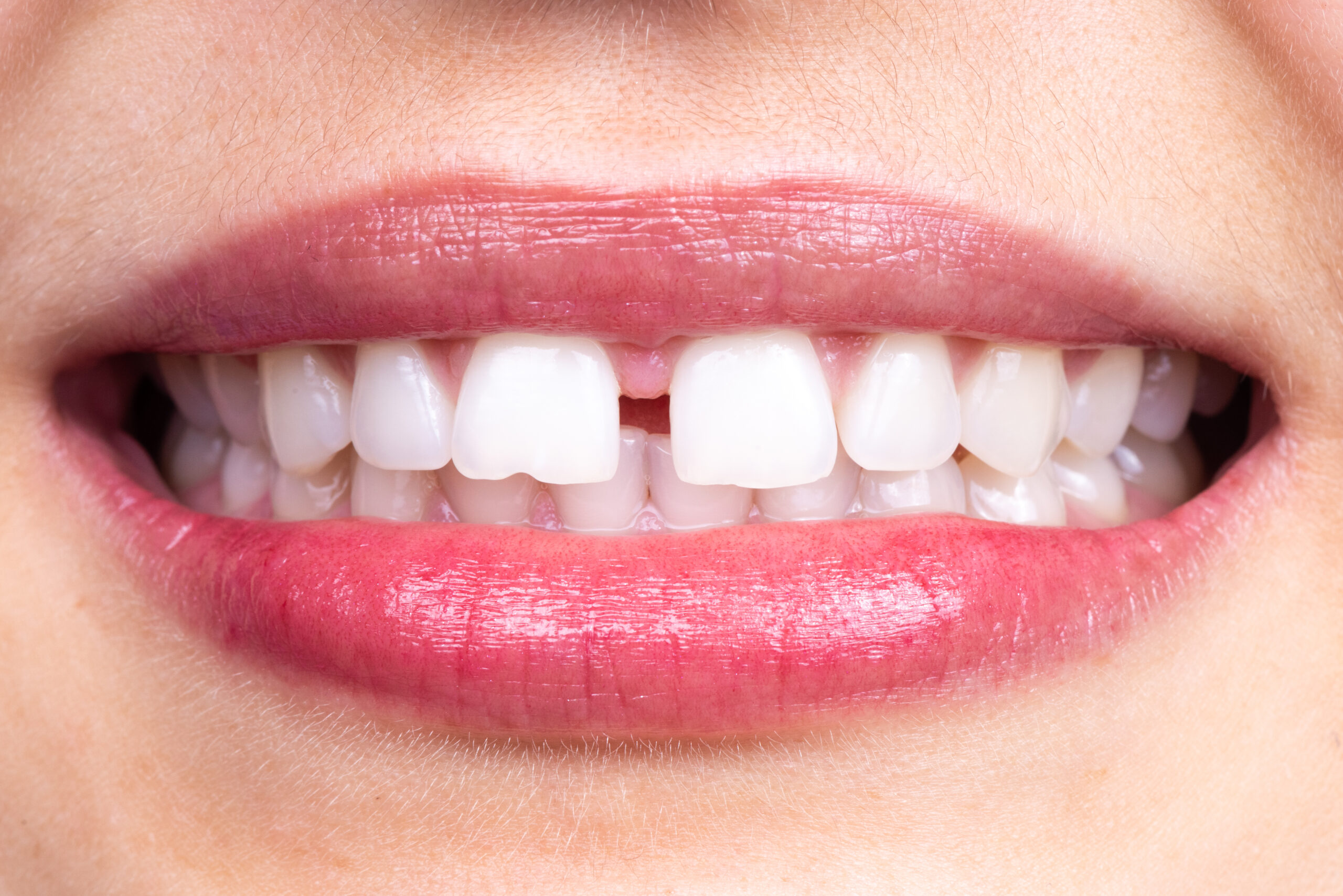
How Teeth Gaps Affect Your Overall Health
Spaces between the teeth, also known as diastema, are common and some even consider them charmful. However, gaps between teeth can cause a range of dental concerns.
Gaps between teeth reflect irregular teeth spacing that often occurs during childhood and can also be hereditary. Besides genetic factors, spaces between teeth can be caused by muscular imbalances and unhealthy habits e.g., thumb-sucking and too much pacifier use.
An oversized frenum can also cause these gaps in the teeth. A frenum is a soft tissue attached between your lips and gums. When that piece of fleshy tissue is too thick, it can produce spaces between the teeth.
If you have diastema or teeth gaps, consult Hills Family Dental Centre or other dental clinics nearby. Dental professionals can offer professional advice and various treatment options (e.g., braces, clear aligners, etc.) to fix the irregular spacing of your teeth.
The primary issue with diastema is that it can make brushing and flossing more difficult. Other issues may occur if you leave the gaps between your teeth untreated like:

- Bleeding Gums
Gaps in your teeth can cause your gums to bleed. These spaces between teeth can cause excessive plaque buildup, which can lead to gingivitis.
Gingivitis is the inflammation of the gums. It develops when the plaque buildup on your gum persists and worsens over time. Plaque growth is possible because of food particles, debris, and bacteria stuck between teeth.
Regular brushing and flossing may help prevent gingivitis by removing plaque buildup before it develops into cavities. Yet it’s different when it comes to people with diastema.
No matter how hard you brush or floss your teeth, there will be particles left due to gaps. This can lead to excessive plaque buildup and lead to more bleeding.
If your gums are bleeding due to diastema, call a dental professional right away. This prevents other issues related to bleeding gums like tooth decay and periodontitis.
- Receding Gums
Gum recession occurs when gum tissues pull down from the teeth. This leaves the roots underneath exposed and makes your teeth susceptible to cavities. Receding gums can make your teeth more sensitive as well, meaning even a slight difference or change in temperature can hurt you.
Aside from aggressive brushing and genetic factors, receding gums can be caused by gaps in your teeth. Unfortunately, no treatment can bring back your gums. But don’t worry; there are ways to prevent it. If the reason for your gum recession is the gaps between your teeth, undergoing dental treatment can help prevent your gums from receding.
Also, make sure to visit your dentist regularly every six months for oral cleaning to prevent plaque buildup. This is a good alternative for people who don’t have enough funds to undergo diastema treatment.
- Bad Breath
Bad breath, also called halitosis, is often caused by food particles stuck between teeth that can lead to unwanted odours. This is especially true when eating strong and pungent food like onions and garlic.
Halitosis may worsen due to improper dental hygiene and diastema. If you have spaces between your teeth, some particles may be left stuck, no matter how good you’re at following proper oral hygiene.
- Cause Damage To Other Teeth
Every tooth in your mouth works together to keep each other rooted in their proper places. When a small gap occurs between them, a shift might cause other teeth to move to fill that vacant space. You won’t quickly notice it until your bite changes—and it’s not for the better.
This shift will affect how your teeth bite and can eventually change how you chew and speak. Misaligned teeth are prone to wear and tear too.
If that happens, the only way to restore the natural beauty of your mouth is restorative cosmetic dentistry. It’s expensive regardless of your condition. That’s why addressing diastema early on is so important.
- Develop Frequent Headaches
If you’ve been having frequent headaches these past few days, the gaps between your teeth might be the culprit. Misalignments and dental irregularities can cause bite issues that may affect your jaw joints, putting you at risk of developing frequent headaches.
If you’re experiencing frequent headaches and discomfort due to diastema, consult your general dentist as soon as possible to determine the best treatment for getting your teeth and overall health back on track.
- Eating Problems And Digestive Complications
When your teeth aren’t in proper alignment, it’ll be difficult for your body to break down the food you eat. This can lead to a range of digestive health problems, such as:
- Bloating – a condition where your stomach feels full;
- Diarrhoea – a condition characterized by watery and frequent bowel movements;
- Heartburn – a burning sensation in the stomach due to acid;
- Indigestion – a painful condition caused by overeating and improper chewing; and
- Malnutrition – caused by lack of nutrients in the body due to improper digestion.
To prevent these common digestive complications, it’s best to treat your teeth gaps so you can chew your food and help your body digest it properly.
What Are The Possible Treatments For Gapped Teeth
Your dentist can address the gaps between your teeth through the following:
- Braces (metal, porcelain, or ceramic) – These orthodontic devices can straighten your teeth. Do note that braces can be painful, especially during the first few weeks or months.
- Clear Dental Aligners – Also known as invisible aligners, these devices can help correct misaligned teeth. Yet, unlike braces, you need to remove them when eating hot foods to prevent the plastic from deforming.
- Dental Bonding – This is the process of applying composite resin to fix small gaps and chipped teeth.
For more information about treating diastema, consult a general dentist nearby.
Final Thoughts
Teeth gaps, or diastema, are irregularities in the spacing of your teeth. Left untreated, it can cause various health issues, especially for more significant gaps. These include bad breath, gum disease, digestive complications, bite issues, and gum recession. If your teeth have wide gaps between each other, call your general dentist to find out which treatment best suits your condition.


